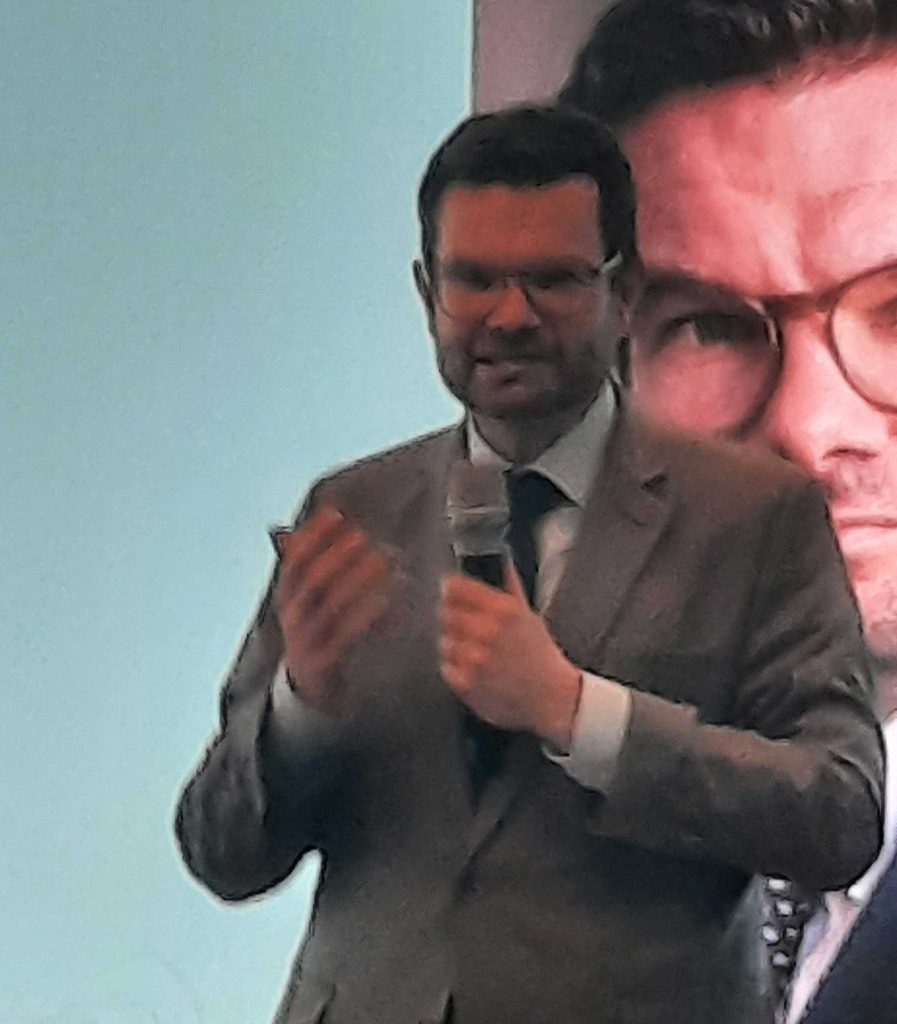(English version follows)
Neue Märkte und Chancen für den deutschen Mittelstand – Business Forum in der Botschaft der Republik Angola
In der Botschaft der Republik Angola lud I.E. Balbina Malheiro Dias da Silva, Botschafterin der Republik Angola in der Bundesrepublik Deutschland, in Kooperation mit „Open International Dialogue“, zu einer Veranstaltung ein zum Thema: „On Promotion and Participation in the Development of Angola“. In dem mit mehr als 80 Personen voll besetzten Konferenzraum der Botschaft waren Vertreter aus der Wirtschaft, dem Tourismus und der internationalen Diplomatie anwesend. Eröffnet wurde die Veranstaltung mit einer Rede der Botschafterin, die in Ihren Ausführungen auf die aktuellen Entwicklungen in dem südwestafrikanischen Land berichtete.
Neben den Herausforderungen während der Coronapandemie, dass Angola einen Rückgang im Bruttosozialprodukt von 8,3% auf 5,1% bescherte, ist Angola, wie so viele andere afrikanische Staaten, von den kriegerischen Auseinandersetzungen zwischen Russland und der Ukraine direkt betroffen, vor allen Dingen was die Getreideproduktion betrifft. Angola hat bisher seine Wirtschaft fast aus- schließlich auf die Erdölproduktion konzentriert. Dies soll sich nun ändern. Der wiederge- wählte Präsident Joao Lourenco hat das oberste Ziel die angolanische Wirtschaft zu diversifizieren. Dies wiederum ist für deutsche mittelständische Unternehmen eine große Chance in diesen Markt langfristig zu investieren. Eine der Hauptthemen sind die Bildung und die Ausbildung, somit ist der „Exportschlager“ des dualen Ausbildungssystems in Angola willkommen. Diese Thematik ist für das Land extrem wichtig, denn 45% der Bevölkerung sind unter 15 Jahre. Ein weiterer wichtiger Aspekt ist die Korruptionsbekämpfung, die seitens des Präsidenten ebenfalls höchste Priorität hat.
Auch der Infrastruktursektor, auf allen Ebenen, bietet eine große Chance für den deutschen Mittelstand. Hierzu gehören Themen wie Photovoltaik, grüner Wasserstoff, Elektrizitäts- und Wasserkraftinfrastruktur, Krankenhauswirtschaft, Straßenbau und viele andere Bereiche. Auch die Landwirtschaft soll auf mehrere Beine gestellt werden. Zitat Präsident Joao Lourenco: „We must urgently produce some of what is put on our table”. Dies wiederum ist ebenfalls eine Chance für den Export von Technik Know How für die deutsche Landwirtschaft.
In einer weiteren Rede stellte S.E. Carlos Sardinha, Ministerium für Außenbeziehungen, Zahlen, Daten und Fakten zu Angola vor und verwies auf die politische Stabilität des Landes. Was insbesondere für den deutschen Mittelstand für langfristige Investitionen von großer Bedeutung ist. Hier wurden u.a. auf die Vorkommen von Bodenschätzen wie Kupfer, Eisen, Öl, Bauxit, Uran, Gold, Phosphat, seltene Erden u.a. verwiesen. Die meisten Geschäfts- und Investitionsmöglichkeiten für potentielle Investoren bestehen, aus Sicht des Referenten, im sozialen Sektor, mit besonderem Schwer- punkt auf beispielsweise der Sanierung und Modernisierung der wirtschaftlichen- und sozialen Infrastruktur, insbesondere des Transports- und Kommunikationssystems.
Besonders hervorgehoben wurden die vier wichtigsten Sektoren, die für deutsche Unternehmen von größtem Interesse sind, nämlich:
1 Landwirtschaft, eines der größten Wasserreserven Subsahara-Afrikas und ausgedehnte Reserven an äußerst fruchtbarem Ackerland
2 Logistikinfrastruktur – einschließlich neuer Projekte in den Bereichen Öl und Gas
3 Telekommunikation und IKT (Informations- und Kommunikationstechnologien)
4 Finanzen und Bankwesen
Abschließend hat Hanna Kleber von der Deutschen Tourismusagentur KPRN Angola als „neues touristische Ziel in Afrika“ vorgestellt. Im Panel zum „Tourismusförderungsplan für Angola“ referierte abschließend Volker Adams,
Leiter Politik / Auslandstourismus des Deutschen Reiseverbandes DRV.
Zusammenfassend bleibt festzuhalten, dass die Republik Angola viele Möglichkeiten für den deutschen Mittelstand bietet in unterschiedlichste Segmente zu investieren. Der deutsche Mittelstand muss neue Märkte generieren, um langfristig auch weiterhin das Rückgrat der deutschen Wirtschaft zu bleiben. Fotos: Jürgen Sendel
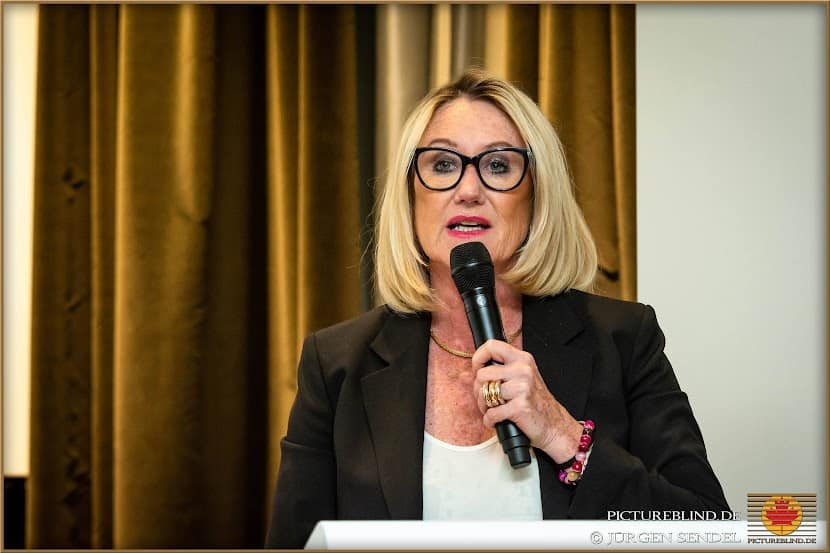
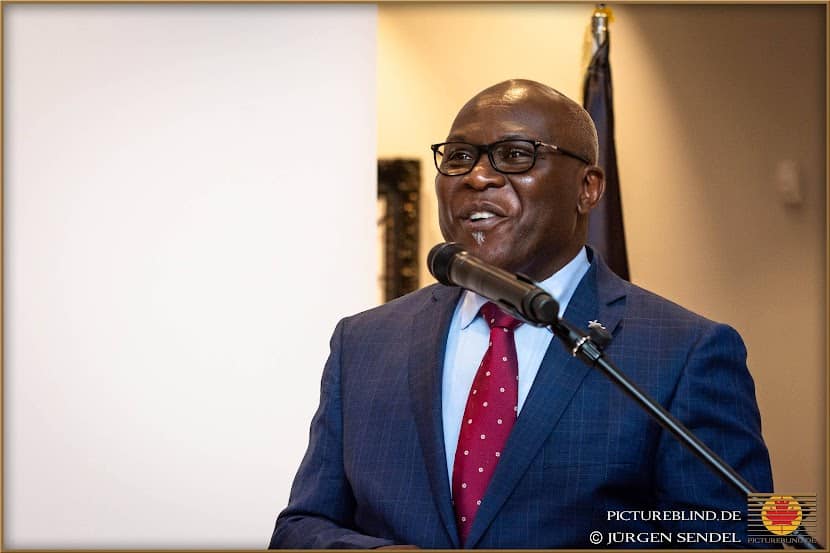

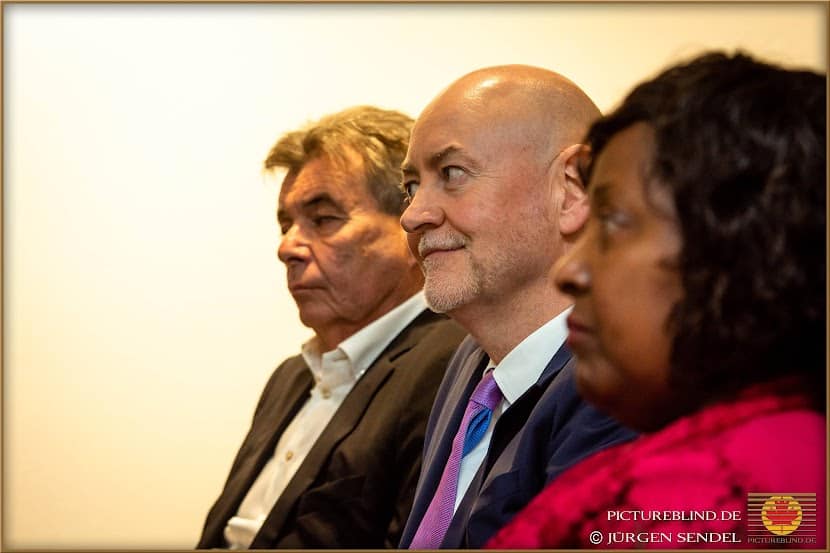
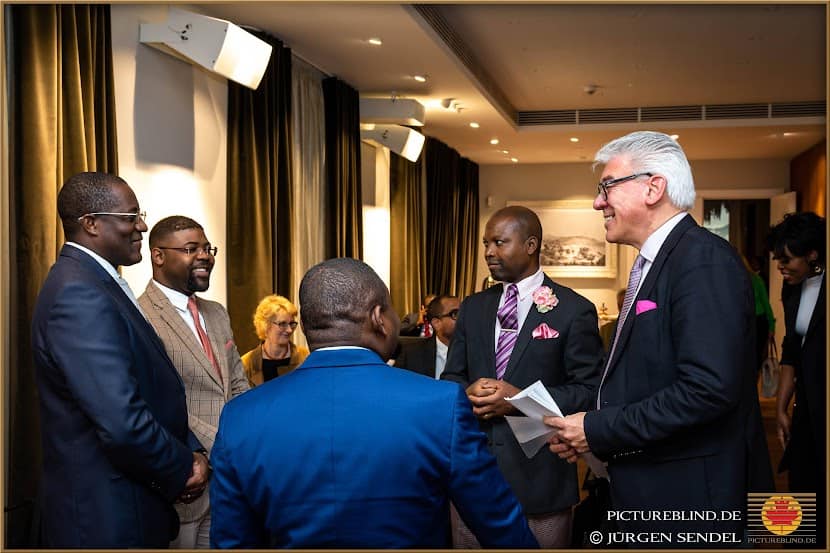
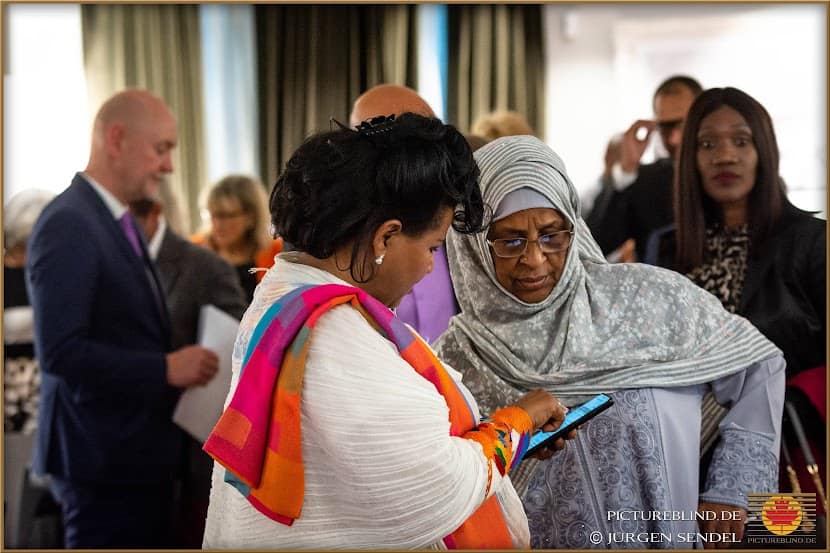
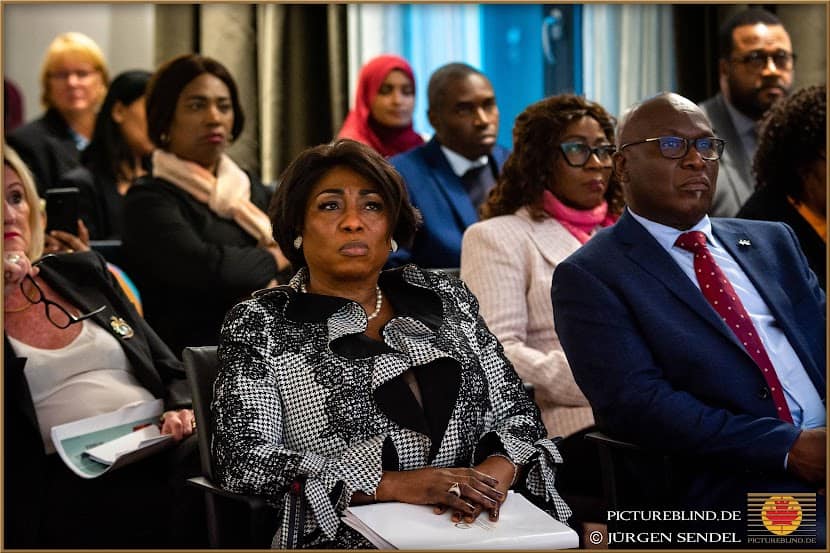
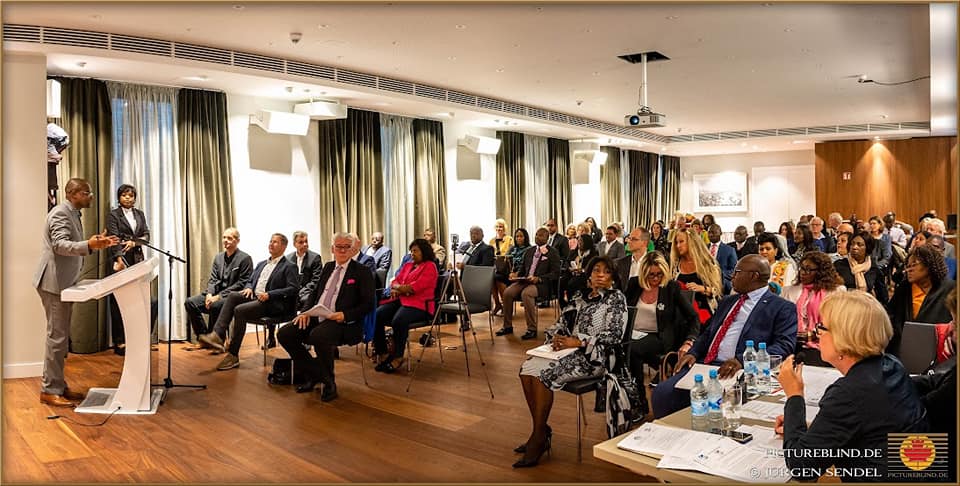
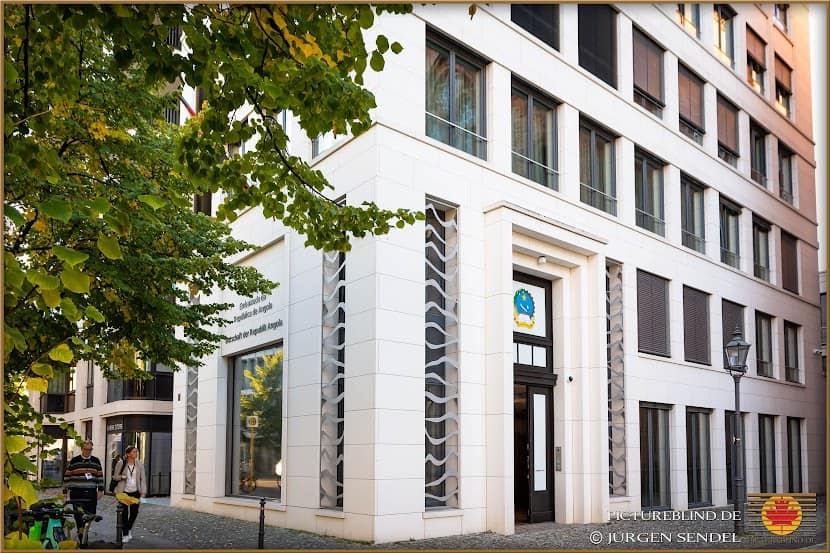
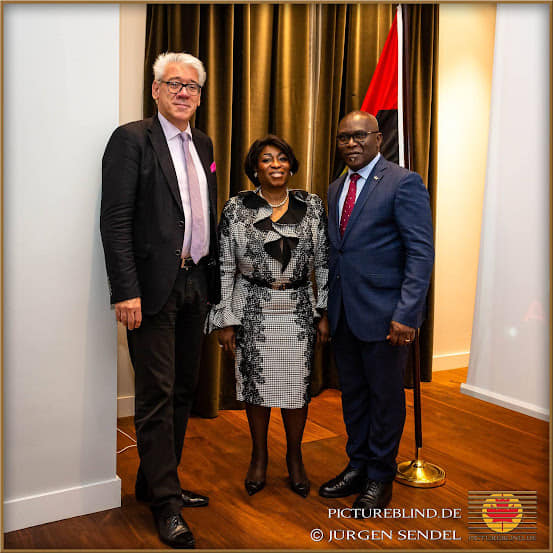
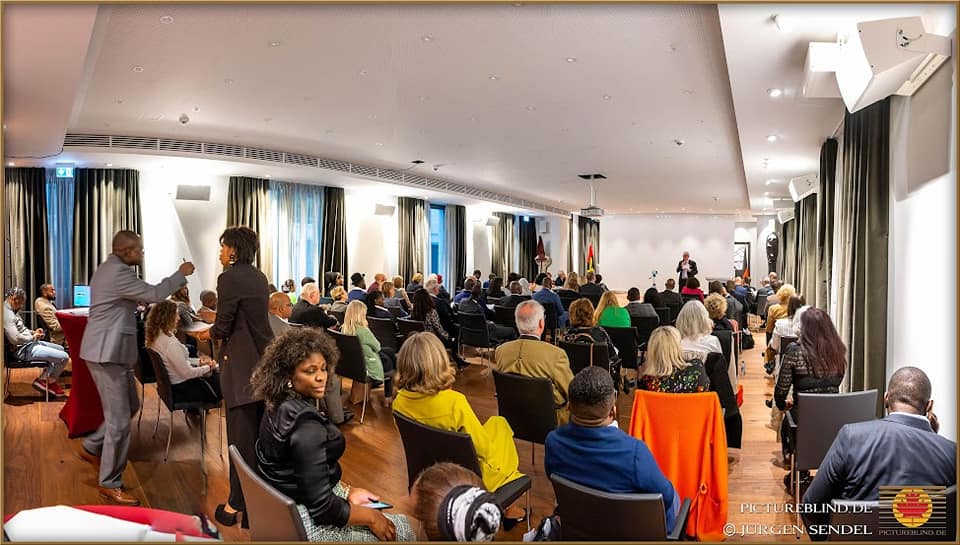
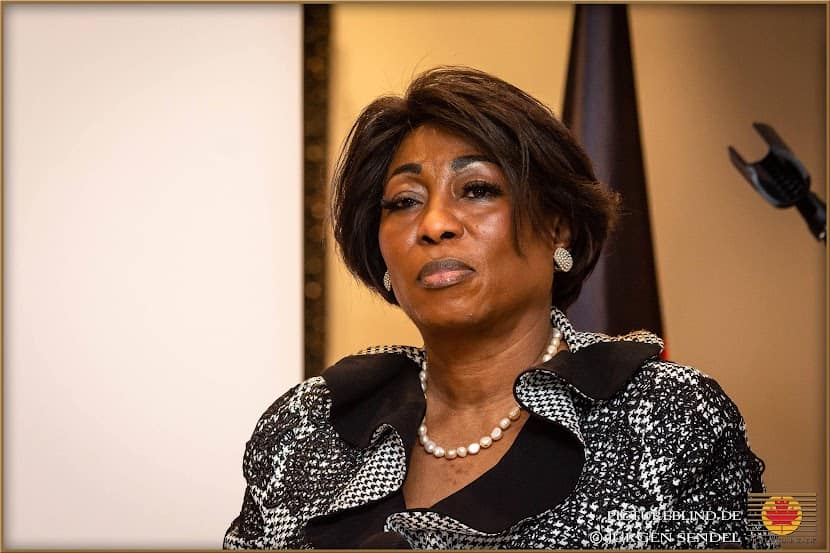
(Deutsche Version weiter oben)
New Markets and Opportunities for German SMEs – Business Forum at the Embassy of the Republic of Angola
In the Embassy of the Republic of Angola, I.E. Balbina Malheiro Dias da Silva, Ambassador of the Republic of Angola to the Federal Republic of Germany, in cooperation with „Open International Dialogue“, invited to an event on the topic: „On Promotion and Participation in the Development of Angola“. In the conference room of the embassy, which was fully occupied with more than 80 participants, representatives from the economy, tourism and international diplomacy were present. The event was opened with a speech by the ambassador, who reported in her remarks on the current developments in the South West African country. Besides the challenges during the Corona pandemic, which caused a decline in Angola’s gross national product from 8.3% to 5.1%, Angola, like so many other African countries, is directly affected by the armed conflicts between Russia and Ukraine, especially in terms of grain production.
Until now, Angola has concentrated its economy almost exclusively on oil production. This is now to change. The re-elected President Joao Lourenco has the primary goal of diversifying the Angolan economy. This in turn is a great opportunity for German medium- sized companies to invest in this market in the long term. One of the main topics is education and training, so the export hit of the dual system is welcome in Angola. This topic is extremely important for the country, as 45% of the population is under 15 years of age. Another important aspect is the fight against corruption, which is also a top priority for the president.
The infrastructure sector, at all levels, also offers a great opportunity for German SMEs. This includes topics such as photovoltaics, green hydrogen, electricity and hydropower infrastructure, hospital management, road construction and many other areas. Agriculture, too, is to be put on several legs. Quote President Joao Lourenco: „We must urgently produce some of what is put on our table“. This in turn is also an opportunity for the export of technical know-how for German agriculture.
In another speech, H.E. Carlos Sardinha, Ministry of Foreign Affairs, presented figures, data and facts on Angola and referred to the political stability of the country. Which is particularly important for German SMEs for long-term investments. Here, among other things, the deposits of mineral resources such as copper, iron, oil. Bauxite, uranium, gold, phosphate, rare earths and others. According to the speaker, most business and investment opportunities for potential investors exist in the social sector, with a special focus on, for example, the rehabilitation and modernisation of the economic and social infrastructure, especially the transport and communication system. Particular emphasis was placed on the four main sectors of greatest interest to German companies, namely:
1 Agriculture, one of the largest water reserves in sub-Saharan Africa and extensive reserves of highly fertile arable land.
2 Logistics infrastructure – including new projects in oil and gas
3 Telecommunications and ICT (Information and Communication Technologies)
4 Finance and banking
Finally, Hanna Kleber from the German Tourism Agency KPRN presented Angola as a „new tourist destination in Africa“. In the panel on the „Tourism Promotion Plan for Angola“, Volker Adams gave a concluding presentation, Head of Policy / Foreign Tourism of the German Travel Association DRV.
In summary, the Republic of Angola offers many opportunities for German SMEs to invest in various segments. German SMEs must generate new markets in order to remain the backbone of the German economy in the long term. Pictures: Jürgen Sendel



